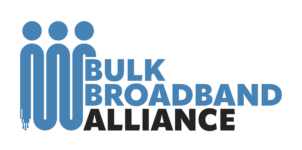In Case You Missed It – Court Ruling Clips FCC’s Bulk Broadband Authority as Local Leaders Rally to Defend These Arrangements
FOR IMMEDIATE RELEASE: August 12, 2024
Contact: Tsmith@pluspr.com or Pivasco@pluspr.com
Washington, D.C. – Recently, the Federal Communications Commission (FCC) faced a significant, if not lethal, legal setback in its efforts to regulate bulk billing arrangements, while at the same time, concerns about potential FCC regulation have fueled a surge of new support for these plans.
Supporters highlighted the benefits of bulk billing plans, including lower prices and higher quality services, compared to retail offerings. They also emphasized how these plans particularly benefit low-income and vulnerable populations, playing an important role in closing the digital divide.
County and city officials, as well as an affordable housing leader, joined the chorus of supporters, expressing concerns about the potential consequences for their communities, particularly for those already struggling to afford or maintain internet access. They fear that if the FCC regulates bulk billing arrangements, residents would face significantly higher internet prices, or even be priced out of the market altogether, further exacerbating the digital divide.
The U.S. Court of Appeals for the Sixth Circuit in Cincinnati recently delivered a blow to the FCC’s Net Neutrality rules – blocking them from going into effect. This setback, according to Blair Levin, a policy analyst with New Street Research, would complicate the FCC’s efforts to regulate bulk billing. Levin suggests that “the stay indicates that the FCC may not have legal authority to regulate broadband in multiple tenant environments in the way the Chair wishes to do.”
The National Association of Counties (NACo) came out in support of bulk billing arrangements, recently passing a resolution opposing the FCC’s potential new rules regarding these arrangements. Their adopted resolution, found on page 229 of their American County Platform, reads as follows: “The National Association of Counties (NACo) urges the Federal Communications Commission to pause in their effort to ban the practice of bulk billing arrangements.” NACo represents more than 3,000 counties, serving nearly 40,000 elected officials and 3.6 million county employees.
Rex Richardson, Mayor of Long Beach, California, submitted a letter to the FCC asking that the Commission not consider regulating bulk billing arrangements. In his letter, he highlighted the benefits that bulk billing arrangements provide to his constituents, writing the following: “These benefits help all consumers, but they are particularly impactful for low-income and other vulnerable communities, as they lower or eliminate adoption barriers that prevent these groups from digitally connecting with their families, neighbors, and vital service providers. Moreover, bulk billing arrangements are a tool that governments and public housing authorities can utilize to bring free internet services to residents in affordable housing. The City cannot afford to undercut market-based solutions that provide significant benefits to consumers or remove options that can be used to help close the digital divide in Long Beach and across the nation. For these reasons, I respectfully urge the FCC to protect bulk billing arrangements.” Read his full letter here.
Also in the news, affordable housing leader Michelle Norris discussed the benefits of bulk billing and how it helps resdients living in affordable housing environments, saying “Under bulk agreements, buildings can leverage the collective buying power of their residents to negotiate a better rate for higher-quality internet across an entire property. With managed Wi-Fi agreements, a third-party network manager monitors Wi-Fi service throughout the building and works with property managers to address service and connectivity issues as they arise. Thus, bulk internet and managed Wi-Fi can reduce the cost concerns to affordable housing providers and residents and the labor intensity of maintaining Wi-Fi networks for housing providers.”
The Bulk Broadband Alliance remains committed to protecting bulk billing arrangements, which help make internet plans more affordable for consumers living in multi-dwelling units (MDUs) such as apartment complexes, senior living facilities, and student housing. Learn more about our work or join the coalition by visiting protectbulkbroadband.com.
###
